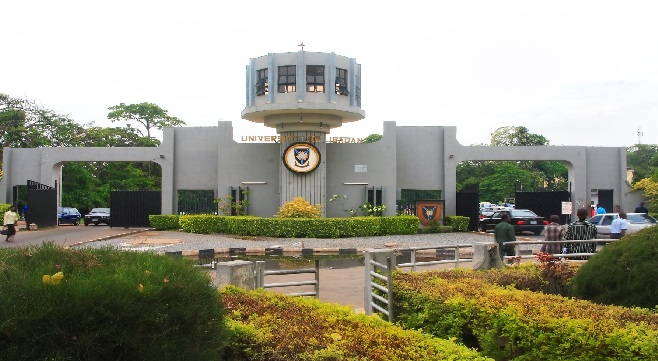I Shall Be Nameless (ISBN)
A peep into the future?
I can’t tell whether it was fear or pity that shook me to pieces when videos of the gross failure of the online learning platform in the University of Lagos surfaced online as regards the conduct of online tests for her students.
The most terrifying thing is that Unilag students have been complaining bitterly about the inefficacy of the online learning method since its inception earlier this year. Nothing seems to have been done about it and this unfortunately highlights the question of whether school management in Unilag are intentionally setting its students up to fail.
Just last week, the Unibadan-ERTC had a series of meetings with students of different levels in the university. One would expect such online meetings with a large number of student participants to be on a bigger platform. Instead, they were all held on Zoom, an application that can only accommodate not more one hundred participants. This gives one reasons to be worried as the school management knew full well that the Zoom platform won’t cater for thousands of students in a level yet opted for it. It would seem, after all, justice is what is good for the stronger.
How Unibadan intends to conduct lectures on Zoom for courses with a large number of student base is still a mirage to me. Although not a dazzling one.
But while it is not recommended to bet against Unibadan, the first and the best, because of the recent misfortune that has had Unilag by the cojones. It should however give one reasons to be worried as this online learning system has not yet been successful in the running of a semester in any Nigerian university. Coupled with the fact that lectures are yet to fully commence up until the fourth week of school resumption in a school calendar of thirteen weeks of lectures for a semester. One won’t be crucified to conclude that Unilag’s online learning virus might be highly infectious.
Where we are presently
How Unibadan intends to teach practical programmes online is a trance I have not fully recovered from. How do you teach music or acting or even public speaking online? Or should we go to the core practical programmes like the sciences, technology, medicine or even pharmacy. How do you intend teaching these technical programmes online? It would seem that fellow was right after all when she remarked that Nigerian universities are using the future of students to test their (universities) IT skills.
But whether Unibadan has shown tell-tale signs that her online learning mode will be any different from what we have seen so far in other universities, we cannot tell as we yet to test the waters with our feet.
Unless we want to be unrealistic, the online learning mode cannot function effectively in an economically backward country like Nigeria. Even the ASUU chairman, Professor Biodun Ogunyemi, was not oblivious of this reality last year when he penned down his almighty, online-breaking, fire-breathing letter to the Minister of Education who had suggested online classes as a response to the COVID-19 pandemic. He said, “There is no single university in Nigeria today that operates a mix-mode system. This is when students have option to take courses online or face-to-face. To seek to transit therefore to online delivery will amount to taking a plunge”. This is exactly what we see happening in Unilag, but again, let’s assume that Unibadan is not and cannot be Unilag. After all, we have our right to different destinies. But should we have blind spots about some potential threats that would besiege us if we don’t address them? No! We do have a bigger fish to fry on some issues on the students’ side that may hinder the success of the online learning mode in the University of Ibadan.
First off, not all Unibadan students have smartphones or gadgets that will enable their accessing the online platform. The school management seem to understand this challenge and have shown concerns as regards mitigating it. In their bid to ensure that no student is left behind as virtual classes commence, the management announced in a memorandum dated February 22nd, 2021, that a device lending pool or/and a soft-payment purchase facility is underway. How the school management hope to achieve this is still far from our imaginations. But we are glad that they are taking strides towards that direction. While at the same time, we hope that their actions match their words to the letter.
Secondly, internet access is a big problem for both students and lecturers. It was joked a month ago how a lecturer in Unilag ended an online class some minutes before its official close because she ran out of internet access. Again, our clairvoyant ASUU chairman did made mention of this. He said, “Online learning can only be effective where there is effective learner support online. For such support to be sustainable both learners and facilitators must have seamless access to the internet…” This again, the school management has proactively responded to by promising to provide data support to all the students of the university. This is commendable as it will in no little way help indigent students who can’t afford internet access to the online platform at all times. But how this will work, how much data will be provided and for how long? We don’t know yet. But we do know that the hike in fees will also affect indigent students. It would seem Lao Tzu was not far from the truth when he said that for one to take, one must give. But that’s a topic for another day.
The last problem the school management cannot seem to address as regards commencement of online classes is the epileptic power supply in Nigeria. In developed climes where online classes are feasible, electricity Supply is not an issue. But the same unfortunately cannot be said for the Nigerian situation. There are some places in Nigeria that have not seen a wink of light in months, even years. To put it simply, the power supply of most places in Nigeria is in a shambles and it would be unrealistic to assume that Unibadan students are all residing in places where electricity is constant and does not blink for a second. This brings to the point where we begin to ask if this temporary experiment is not setting up students to fail? Where we begin to ask if this mode of learning is truly based on merit as it should be? While we ponder on these gnawing questions, the solution to our Himalaya of predicaments may not be afar off.
Now the vaccines are here!
The school management should through its umbrella body, ASUU, and other relevant stakeholders influence the federal government in getting vaccines for tertiary institutions so that students and lecturers can be vaccinated against COVID-19 in order to resume school and have physical classes, tests and examinations as this online learning mode does not take into full account the reality of the Nigerian situation. And a learning system with such leanings is fundamentally bereft of merit.



